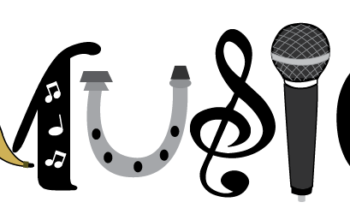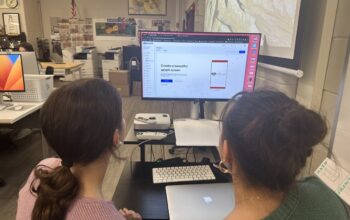Tina Tehrani
Senior Editor
How was the lounge set up back in the day?
There was basically one large dining room. Right down the middle of it was a bank of glassed windows to separate two sections. One section was freshman and sophomores the other section was juniors and seniors. It was not open during the course of the day as it is now. During a few of the periods there were assigned study halls in there but you had to sit quietly and do work. Teachers supervised the study hall to make sure you didn’t talk. So it was quite a difference set up then back in those days everybody was assigned a period, you had no such thing as a free period. If you did have a period free from an academic class you were assigned a study hall-that was for everybody not just for kids that were deemed in need of it. For lunchtime, which is when the school was in there, [there]was pretty rigid segregation. The freshman and sophomores were assigned to their area and actually the freshman stayed in one area, the sophomores stayed in another, as did the juniors and seniors. Strict segregation and once again a lot of teachers were in there. But to be honest with you there really weren’t a lot problems back in our day. This was a couple of years before Vietnam became a huge issue-were talking mid-60’s. So back in those days all the students believed what their government told them. They certainly believed what their parents and teachers told them, so it was a much quieter time but there was strict segregation. Nowadays kids are able to sort of form their own little subcultures, sociologically speaking, when back in our day they were rigidly assigned to you.
Do you think there was a specific culture that was in the lounge when you were in high school? What’s the subculture from what it is now from what it was before?
Back in my day, once again like as I mentioned there’s rigid class segregation. A senior wouldn’t be caught dead in my day talking to a freshman or a sophomore. In that regard, it’s a lot better these days, kids are a lot more willing to not only talk too but actually help someone who needs some assistance or needs some help. The fact that there is this less rigid distinction I think is a huge plus. Any kind of class distinctions are not a good thing, in my humble opinion. You were encouraged to accept the party line in my day. Accept who you were and don’t go outside of your class or your little group. I think the Vietnam War, as I mentioned, opened a lot of eyes to the fact that perhaps you just shouldn’t be sheep going through the slaughter. Perhaps it might be good for you to ask some questions like why are we doing this? What sense does this make? So in that regard the openness of today’s society is a little better than it was in my day but of course in the case of the tale wagging the dog, in some regards its gone a little too far. The open disrespect for elders and for other people, even peers, has gotten me a little aghast. I’m not wild about that but for the most part things are much much much more open than they were in my day when things were much more rigid.
Don’t you think that there’s a same system that existed in 1972 till now?
I would definitely agree with that but that is more self-imposed. You folks have chosen to be with who you want to be with and I’m sure a lot of kids are intimidated into staying within their little group. But as I say you have the choice of who you sit with, who you want to sit with. Back in our day you really didn’t have any choice, you were assigned “you had to sit here” “you had to be with these people” and as a matter of fact as I mentioned, in study halls you could not even talk to the people you were sitting next to. So I’m sure there always will be social distinctions of people just assign themselves to that. But as I mentioned in my day they were assigned to you and then nowadays you have a little more say in who you want to be and what you want to do and who you want to do it with.
How far back do you think this all started? When you were here in 1963, how did it start?
Well I graduated from high school in 1967 and went to college through 1971. Did something outside of the school, the school year of 1972; I was actually the director of the teen center so I was in the school physically though not working in the school. So starting in ’72 was when my observations here could begin and that was also, by the way, the year the school opened up so I would say since the opening of this school because when the school opened they instituted a whole new set of looser rules for the kids. In other words they had open campus. I don’t believe they had everyone assigned to a study hall so it started as soon as this building opened up. Down through the years, rules and regulations have kind of waxed and waned. For instance when Katherine Heigl’s older brother Jason was killed in an accident running, actually coming home from lunch at some fast food establishment the rules were tightened up again. Then a few years later people kind of forgot about that so they were loosened up again. So there’s a natural ebon flow to society but it’s been my observation that any time anybody tries to legislate morality that’s a losing proposition. The people, the public, society decides unmans what their morality should be-the rules and regulations. Of course the high school could dictate a little more freely to young adults who haven’t reached the age of 18 yet. But the openness you folks enjoy now actually started when this school opened up in ’72.
Do you think it’ll ever end?
My guess would be as a pseudo sociologist knows, and much the same way the Roman Empire was sort of done in by its own excess, that’s the only foreseeable end for today’s society. It’ll trudge along its own current path for quite a while I would say contrary to what the movie 2012 is espousing now but eventually because of the way things are going I eventually believe we will meet the same destiny that befell the great Roman empire.




One thought on “Mark Rearick’s Historical View of the Lounge: 1972”
Comments are closed.